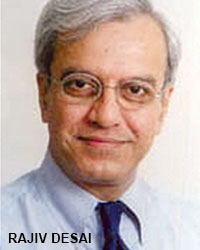New depths under saffron dispensation
 Since 2014 when the BJP-NDA coalition was elected to power in New Delhi and re-elected in 2019, the BJP leadership and saffron polemicists have plunged the public discourse to new depths.
Since 2014 when the BJP-NDA coalition was elected to power in New Delhi and re-elected in 2019, the BJP leadership and saffron polemicists have plunged the public discourse to new depths.
It’s a matter of deep regret — and all right-thinking citizens should protest — that since 2014 when the BJP/NDA coalition was elected to power in New Delhi and re-elected in 2019, the BJP leadership and saffron polemicists have plunged the public discourse to new, unprecedented depths.
Think about it: A prime minister, who is supposed to lead all of India, not just his own party, goes around telling hot-headed Hindutva audiences that the 67 percent of Indians who didn’t vote for his party are traitors. Such simplistic formulations, common in authoritarian countries, were unknown in political campaigns in post-independence India. That Indian democracy has a tradition of vociferous debate is acknowledged and its boisterous nature is appreciated worldwide.
The emergence of Narendra Modi as leader of the BJP has changed this tradition. With less than a third of the popular vote, without consulting or even informing Parliament, Modi announced the scrapping of high currency notes in November 2016. As the economy stumbled, the regime trotted out sycophants and sophists to challenge and denigrate all who criticised his wanton and reckless demonetisation initiative.
Think about it: A prime minister decides it will be politically advantageous for him to abrogate Article 370 of the Constitution. This provision conferred special status on Kashmir, especially administrative autonomy. Consigned to the bin alongside is Article 35 which restricted the sale and purchase of real estate in Jammu & Kashmir. Worse, communications were cut off; leaders and workers of political parties jailed; and hundreds of thousands of troops dispatched to the state, like an occupying force.
Provisions of Article 370 were rendered somewhat anomalous because the state assembly dissolved itself before making any decision. The business of the integration of Kashmir remained unfinished over the years, igniting military conflicts between India and Pakistan. It also provoked militancy within the state. It is worth recalling that the entire territory is the subject of claims and counterclaims not just between India and Pakistan, but also China, which contends that the Aksai Chin area is part of its Xinjiang and Tibet provinces. The wisdom of leaders like Jawaharlal Nehru and others kept it from becoming a volatile issue in elections over the decades.
Think about it: A prime minister dismantles the state of Jammu & Kashmir, breaking it up into two Union territories to be governed from Delhi. This has become a signature of the authoritarian mindset of the BJP leadership, ramming through changes without consultation, with no care that a constitutional guarantee was given to the state as part of the accession agreement of October 1947. Also, as blatant falsehoods accompany such rogue acts, prime minister Modi claims abrogation of Articles 370 and 35 will catalyse the state’s economic development and enhance the rights of its people.
Moreover, in a lamentable collapse of journalistic ethics, the Indian media blacked out all objective coverage of the pivotal Article 370 decision. This has become the norm in Indian journalism, the regime successfully steers any debate on key issues its way with the willing connivance of cheerleaders in the broadcast and print media. However, international media coverage indicates that these foolhardy initiatives have hardened mindsets among the people of Kashmir, in the valley and in the diaspora. With leaders of the main political parties in custody, the BJP leadership’s ill-considered Kashmir decisions have shrunk the space for moderate views that favour India against the blandishments of outsiders including radical Islamists and the Pakistani state.
Think about it: The prime minister publicly endorsed Donald Trump ahead of next year’s US presidential election, while addressing a besotted crowd of NRIs in Houston. Also invoking the threat of terrorism as a communal dog whistle, he said in Hindi: ‘Next election, vote for Trump’. He seemed unaware that by interfering in the domestic politics of a friendly country, he would antagonise leaders of the opposition Democratic party.
The reckoning came a few weeks later in Washington DC, at a Human Rights in South Asia hearing held by the foreign affairs committee of the US House of Representatives. Several diplomats and experts including Pramila Jayapal, a Democrat from the Seattle area, severely criticised the Indian government for “the hundreds of detentions and arrests without any charge”. In response, the US government representative told the committee that no diplomatic access was allowed by the Indian government to US officials to investigate the situation in the state.
Conclusion: Public debate and policies have plumbed new depths under the saffron dispensation. But results of recent state legislative elections in Maharashtra and Haryana provide a ray of hope. The sharply reduced number of BJP seats is a signal the people of India won’t easily surrender their democratic rights. They will make it hard for the authoritarianism of the BJP leadership to strike roots.
(Rajiv Desai is president of Comma Consulting and a well-known Delhi-based columnist)















Add comment